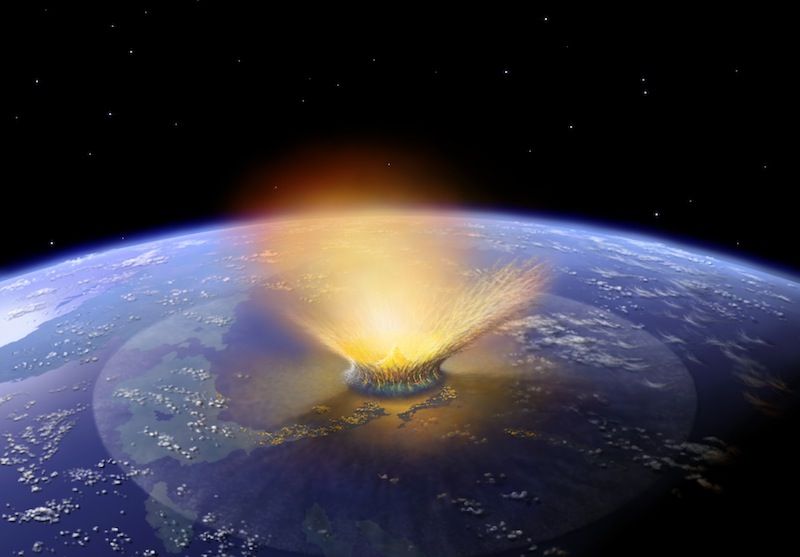Life May Be Common in the Milky Way, Thanks to Comet Swapping
By Mike Wall 12 hours ago Search For Life
And Earth may be one of the primary donor worlds.

An artist's illustration of a massive impact on earth. Some single-celled organisms may be able to survive extreme impacts such as these, scientists say.(Image: © Don Davis/NASA)
Life has had plenty of opportunities to spread throughout the Milky Way galaxy over the eons, a recent study suggests — and our own Earth may be one of the key dispersal points.
The sun's random motion through space has brought it close to many other stars over the past 4.6 billion years. These close encounters likely jostle far-flung comets free from both systems, sending them careening toward the passing star, said study author Robert Zubrin, president of the Colorado-based company Pioneer Astronautics.
This "comet swapping" is probably responsible for many of Earth's past mass extinctions, Zubrin found. But the phenomenon has also likely aided life in the bigger picture, helping it hop from island to island across the vast ocean of space, he said.
"It's a mechanism whereby life could have been delivered to us, and whereby we have probably delivered life to lots of other places over the past 3.5 billion years," Zubrin told Space.com. "And if you simply extrapolate off of that and say, 'Everybody's doing this,' you've got the galaxy as a supercritical reactor, saturating itself with life."
More:
https://www.space.com/life-spread-around-galaxy-panspermia.html?utm_source=notification
